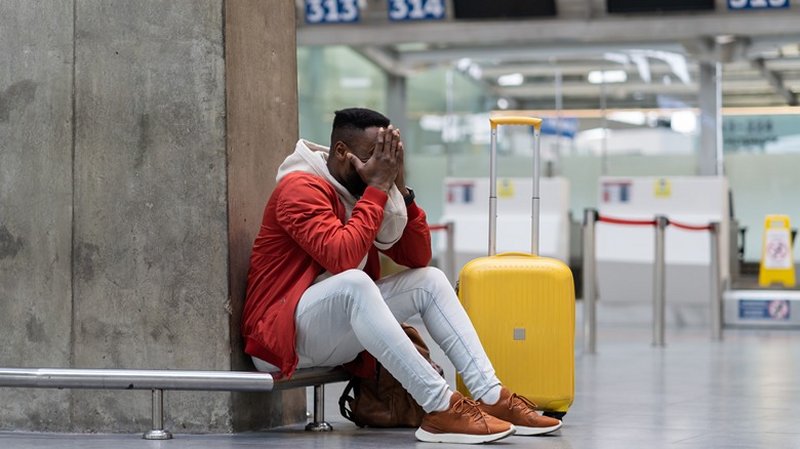Traveling opens doors to new experiences and unforgettable memories. However, it also exposes you to potential scams designed to separate you from your hard-earned money. From petty theft to sophisticated online schemes, being aware of common travel scams and knowing how to avoid them is crucial for a safe and enjoyable trip. Artificial intelligence is now being used to create incredibly realistic counterfeit websites for hotels, flights, and tour packages, making vigilance more important than ever.
Common Scams on the Ground
Taxi Overcharge: A classic travel scam involves taxi drivers taking advantage of tourists unfamiliar with local routes and fares. They may take longer routes, tamper with the meter, or simply quote an exorbitant price. Always research typical fares beforehand, insist on using the meter, or negotiate a price before getting in. Ride-sharing apps can also offer a more reliable and transparent option.
Beggars and "Free" Gifts: While genuine need exists, some beggars operate in organized groups, using guilt or distraction to target tourists. Similarly, be wary of seemingly generous offers of "free roses" or trinkets. Once you accept, they'll demand payment, often aggressively. Politely decline and avoid engaging.
Pickpocketing: This is a common threat in crowded tourist areas. Be mindful of your surroundings, keep valuables out of sight, and consider using a money belt or cross-body bag with secure closures. Avoid putting wallets in back pockets.
Online Scams and Deceptive Practices
Vacation Rental Scams: The rise of online vacation rentals has also brought an increase in fraudulent listings. Scammers may create fake listings with enticing photos and low prices, only to disappear after you've sent a deposit. Always book through reputable platforms with secure payment systems and read reviews carefully. Be suspicious of listings that seem too good to be true or sellers who pressure you to pay outside the platform.
Hotel Scams: Beware of fake hotel websites, now increasingly sophisticated thanks to AI. These websites mimic legitimate hotel brands, tricking travelers into booking rooms that don't exist or are vastly different from what was advertised. Always book directly through the hotel's official website or a well-known and trusted booking platform. Double-check the website address for any subtle variations.
Third-Party Booking Scams: While many third-party booking sites are legitimate, some are designed to mislead customers. They may advertise incredibly low prices that suddenly increase during the booking process due to hidden fees or taxes. Read the fine print carefully and compare prices across multiple reputable sites before committing. Look for verified reviews and check the site's reputation.
ATM Skimming & Fake Wi-Fi Networks: Be cautious when using ATMs in unfamiliar locations. Skimmers attached to the card slot can steal your card information. Inspect the ATM for any signs of tampering before using it. Similarly, avoid using public Wi-Fi networks for sensitive transactions, as they may be unsecured and vulnerable to hackers. Use a VPN (Virtual Private Network) to encrypt your data.
Darker Side of Travel Scams
Sex Workers and Human Trafficking: It’s crucial to acknowledge the darker side of travel scams and their connection to exploitation. Sex work is often intertwined with human trafficking, and tourists can unknowingly become involved. Be aware of the signs of trafficking, such as individuals who appear to be controlled by others, are lacking proper documentation, or are working in exploitative conditions. Support ethical tourism operators and report any suspected cases of human trafficking to the authorities.
Staying Safe: General Tips
- Research Your Destination: Before you go, research common scams in your destination.
- Trust Your Instincts: If something feels off, trust your gut and remove yourself from the situation.
- Be Aware of Your Surroundings: Pay attention to your surroundings and be mindful of potential threats.
- Protect Your Valuables: Keep your valuables secure and out of sight.
- Use Reputable Services: Book accommodations and transportation through reputable providers.
- Report Suspicious Activity: If you encounter a scam, report it to the local authorities and the relevant online platforms.
- Keep copies of important documents Keep copies of your passport, ID, and travel itinerary, stored separately from the originals..
By staying informed, vigilant, and cautious, you can minimize your risk of falling victim to travel scams and enjoy a safe and rewarding travel experience. Remember, a little preparation can go a long way in protecting yourself and your belongings.
Word Count: 786

Steven Philips
Steven loves the great outdoors and is all about getting more folks to appreciate and protect our planet by showcasing its stunning beauty. Steven calls Canada home as he resides in British Columbia with his wife and 3 kids.






Leave a comment?
To write a comment, you must login or register first.